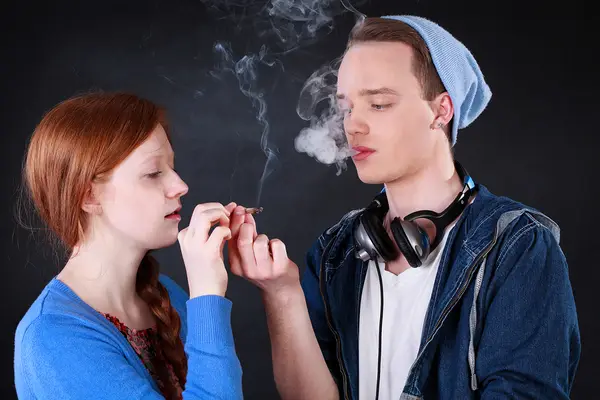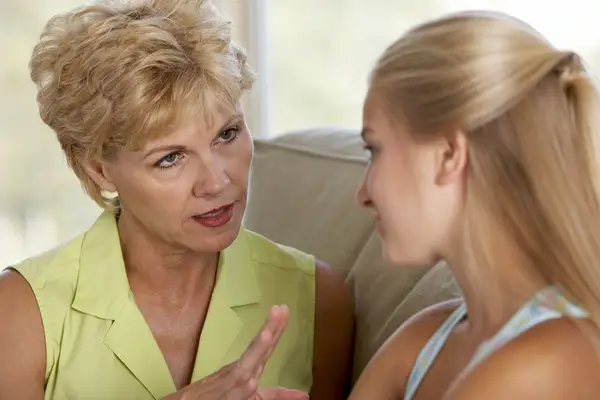How to Talk to Your Teen About Marijuana

Talking to children about marijuana use can be difficult for any parent, but perhaps it is even more difficult when you live in a state where recreational marijuana use has been legalized for adults. What can parents do to ensure their children are educated about the legal, physical, and emotional consequences of adolescent marijuana use?
The Situational Dilemma
The issue here is not to debate whether marijuana is harmful or should be legal. Statistics can be cited in ways that can substantiate any perspective or rationale. Consider this quote from Seattle Children’s Hospital Research Center:
“Most Seattle high school students do not use marijuana. Seventy percent of Seattle high school seniors report that they do not use marijuana, according to the Washington State Healthy Youth Survey. What this means is that everyone is not doing it.”
The other side of that statistic is that thirty percent of Seattle high school seniors use marijuana! Plus, although marijuana use is “legal” in the state of Washington, the fact remains that possession is illegal for anyone under the age of 21!
What is at issue, then, is a practice that is not only addictivefor people of all ages but also illegal for teenagers in Washington.

The Parental Dilemma
If either or both parents are marijuana users, the situation is entirely different than when both parents are opposed to marijuana use.
Parents do not use marijuana may have greater success in talking to their teens about it. They can discuss and review the facts without their own lifestyle being viewed as hypocritical. They are in a position to explain why they believe that marijuana use is wrong and be able to back it up with their own behavior as an example and a standard.
The Children’s Hospital Research Center also cautions that:
“You are the most important role model for your children. If you use marijuana . . . think about how your use affects your children. You may not realize it, but your children watch you closely.”
Parents who use marijuana may have a difficult time explaining why marijuana use is okay for them but not for their teenagers. Parents need to realize that, regardless of their own perspective, their children view what happens in the home as normal. If what they see you doing is normal in their eyes, expect a much more difficult time explaining to your teens why what is fine for you is not fine for them.

You have to tell your kids something about marijuana use. The best thing to tell them is the truth. Do not think for a minute that they do not know as much about marijuana as you do. They may know even more. In order to be effective, you must discuss proven, factual evidence. Children deserve to be made aware of the risks and dangers of marijuana, but they have also got to believe that those risks and dangers apply to them.
They are not immune to the potential dangers, regardless of what they might think or feel. The feeling that they are immune is not coming from knowledge of the facts. It is coming from the pressure of the thirty percent of their peers who are using and have yet to visible suffer the inevitable consequences.
Here are a few guidelines that can help you help your kids to shun marijuana and the drug culture. These guidelines are, by and large, gleaned directly from “A Parent’s Guide to Preventing Underage Marijuana Use” published through a collaboration of social health organizations.
- Express a “no use” attitude. Children whose parents have a positive attitude toward marijuana use are five times more likely to use marijuana by 8th grade.
- Start early. Teenagers who use marijuana often start by age 14. Parents should start an ongoing conversation about drugs by 4th or 5th grade.
- Be clear and specific about your expectations.
- Help your child to find the right ways to refuse drug offers.
- Communicate the importance of healthy behaviors.
- Establish clear and specific rules about not using marijuana and other drugs.
- Be actively involved in your child’s life.
- Monitor your own behavior.
The teenage use of marijuana is a behavioral problem, just like many of the other problems you have had to deal with as a parent. You have gotten them this far. Keep on preparing them to launch out on their own with a strong moral compass and guidance system, as well as accurate knowledge on the subjects that truly matter.
If you need advice or help with a marijuana use problem, do not hesitate to contact us. All conversations are held in the strictest confidence. We know that it can be hard for young adults to face their addiction, especially when they are fearful of letting others in their family and circle of friends down. Surround your loved one with as much support as possible, to make clear that they have a wide and dedicated group of people that are only interested in what is best.




